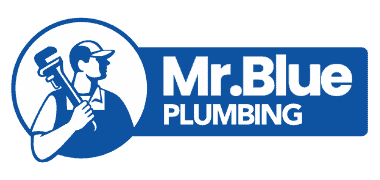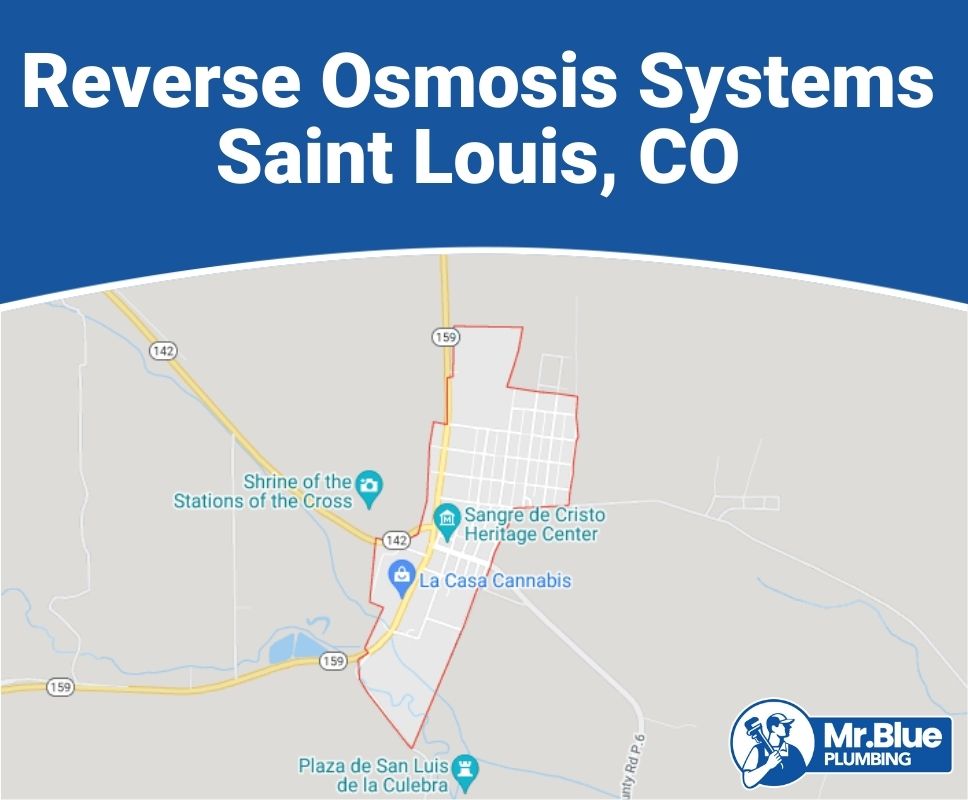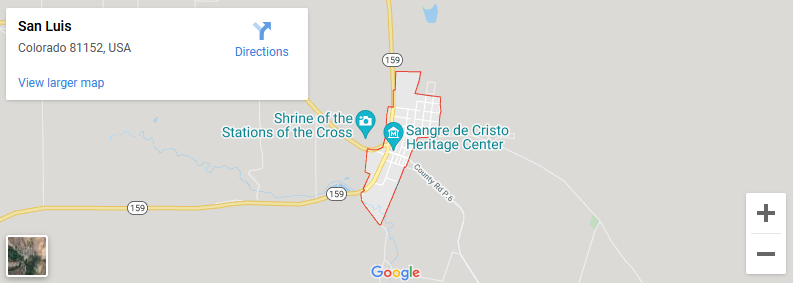Contents (Click To Jump)
- 1 How Much Does Reverse Osmosis Installation Usually Cost in Saint Louis?
- 2 What Are the Most Common Water Contaminants in Saint Louis?
- 3 Can Residents in Saint Louis Benefit from Reverse Osmosis Treatment?
- 4 How Often Should Residents in Saint Louis Replace Reverse Osmosis Prefilters?
- 5 Do You Need a Water Softener with Your Reverse Osmosis System in Saint Louis?
How Much Does Reverse Osmosis Installation Usually Cost in Saint Louis?
Reverse osmosis water filtration is the most often used system on earth. RO, as it’s commonly called, filters water by applying force to one side of a semi-permeable membrane. In the simplest sense, it works as water passes through the membrane leaving behind large molecules that cannot.
Reverse osmosis differs from simple membrane filtration in that it involves diffusion (moving molecules from a high concentration area to a low concentration area) and is affected by water stream rate and pressure.
Reverse osmosis water filtration is the least expensive and most effective way to filter water in your home. It reduces sodium from soft water, leaves crystal clear ice cubes, and is better for cooking. The average range of installation for an RO system in Saint Louis is between $113 and $1132, depending on a few extraneous factors.
Here are a few factors to consider that can have a positive or negative effect on the final cost of a reverse osmosis water filtration system in Saint Louis.
What Type of System Do You Want?
There are two basic types of reverse osmosis water treatment systems: point-of-use (POU) and point-of-entry (POE). POE systems are used for one spot, such as the kitchen sink. They are small and generally fit under the sink or on a countertop. POE systems are whole-house systems that treat the water at every point.
POU systems are less expensive because they are smaller and treat just one area. There are a few types, such as under the sink, countertop, and tankless versions.
Countertop RO systems generally run from $300 to $500. They are more expensive than tank-based systems because they don’t require professional installation or connection to a waterline. They are perfect if you need a portable option.
The tankless version of the under-the-sink option is typically $300 to $600. Usually, Saint Louis residents go for an under-the-sink RO system with a tank. They typically run $200 to $600 and are a bit more complicated to install but you get a lot of clean water for any use you can think of.
A point of entry, or whole house RO system costs roughly $1,500 on average. Prices can reach as high as $10,000 depending on the size of your home, the brand of system, and any extras you need, but it eliminates the need to purchase bottled water or use water elsewhere.
How Efficient Is the System?
You measure the efficiency of a reverse osmosis system by two factors: how fast it can deliver filtered water and how much water gets lost in doing so. Unfortunately, all reverse osmosis systems waste some water during the water treatment process; there is simply no avoiding it. But many modern systems are far more efficient and waste less water than the traditional RO system, which makes them cheaper in the long run.
RO water treatment systems traditionally had a 1:4 ratio of pure water to wastewater. This means 1 gallon of pure water is generated for every 4 gallons of water wasted. These systems are the least pricey because, in the long run, you’ll waste the most money. Today, you can find RO systems with improved ratios of 1:2 or even 1:1. These long-term savings will typically cost $100 to $200 more.
How Many Stages of Filtration Are There?
Reverse osmosis systems are more expensive if they provide more than the average number of filtration stages. Typically, water goes through 4 stages: pre-sediment, carbon, a semi-permeable membrane, and a post-filter. A 4-filter system can remove more than 99.9% of total dissolved solids from water. Some under-sink and whole-house systems more than double this number – up to 10 or 12 stages.
With extra filtration stages, the water that’s produced will be about as clean and pure as it comes. Extra filters examples are:
- Additional carbon blocks
- GACs (granular activated carbon)
- Alkaline or mineral filters – which work by introducing healthy minerals back into filtered water
The more filters that are present, the more money you’ll spend on replacements. It sounds impressive to have 10 or more filter stages, but it won’t help your water much more, so consider whether it’s actually worth the extra cost.
What Are the Most Common Water Contaminants in Saint Louis?
The majority of Saint Louis’ tap water comes from the Mississippi River. It is treated at the Howard Bend water treatment facility. Contaminants can find their way into a city’s water supply even under the most stringent of testing mandates. Some of the most hazardous water contaminants have no taste or smell. They don’t color the water or produce floaters. Others are more obvious and leave water unpleasant to drink or to use for cooking and bathing.
All public water supplies must be regularly tested for contaminants. Saint Louis has problems periodically with the following contaminants:
- Chromium 6 — Despite being highly toxic, the EPA does not currently regulate this metal. Saint Louis tap water averaged 1,600 parts per trillion for chromium 6 in 2021. Chromium 6 comes from the water supply, not the pipes. It is recommended that Saint Louis’ residents filter chromium 6 from their water using a reverse osmosis system. Boiling and freezing water does not remove chromium 6.
- Lead — Lead gets in Saint Louis’ water when the pipes and plumbing system are old. Pipes made before the 1970s often have lead coatings. Reverse osmosis removes lead from drinking water.
- Disinfection byproducts — When chlorine-based cleaning products are dumped into the water supply, they can end up in your drinking water.
Can Residents in Saint Louis Benefit from Reverse Osmosis Treatment?
Using a reverse osmosis water filtration system has many benefits in Saint Louis. Whether you’re worried about contaminants or just the clarity of your drinking water, reverse osmosis systems improve the quality of your water experience in several ways, including:
- Efficient lead removal — The CDC states that reverse osmosis is effective in removing lead from drinking water.
- Safe for cancer patients — Cancer patients have weakened immune systems. Drinking or cooking with untreated water is a serious risk. Reverse osmosis filtered water is safe for cancer patients to use in any way.
- Cryptosporidium filter — Cryptosporidium are harmful parasites found in untreated water. They affect the small intestines and cause cramps, diarrhea, and fever. Reverse osmosis filtering destroys these nasty parasites.
- Sodium filter — Sodium molecules are removed from water during reverse osmosis filtering. People with kidney or liver diseases, or high blood pressure, find great benefit in this type of water filtration system.
How Often Should Residents in Saint Louis Replace Reverse Osmosis Prefilters?
Your water filtration unit will not function properly if the filters are not changed regularly. The city of Saint Louis recommends that you change the filters in your reverse osmosis filtering system at least every 6 months to 1 year. If the water you’re filtering is highly contaminated or you use a lot of water, you will most likely be changing to a fresh filter more often than average.
The sediment filter is your home’s first line of defense against water contaminants. It helps keep your system performing well and lasting for years. It should be changed every 6 to 9 months for best results.
GAC filters protect the system’s permeable membrane. They are vital in the removal of chlorine and must be replaced every 6 months to a year.
Carbon polishing filters put a finishing touch on the water before it exits the faucet using activated coconut shell carbons.
The reverse osmosis membrane will last longer if all these prefilters are properly changed. It can last at least a year and up to 3 years if you have soft water.
Do You Need a Water Softener with Your Reverse Osmosis System in Saint Louis?
If you have hard water, you’ll be doing yourself a favor by using a water softener with your reverse osmosis water treatment system. This is especially true if you also have a high sodium content in your drinking water. Both water softeners and reverse osmosis systems are important for drinking water, but they are not interchangeable.
A reverse osmosis system filters out the hard water minerals, but they clog up the filters and weaken the system. Using a water softener first helps prolong the life of your reverse osmosis system.






